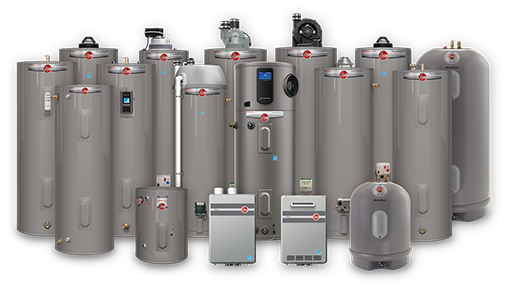Wondering what size water heater tank you need if you’re looking to install a water heater or replace an old one? It’s important to ensure you get one large enough to avoid the unpleasant surprise of a cold shower. You could just opt for the biggest possible size—but that comes with a bigger price tag, so why spend the extra money if you’ll never need to use a large heater to its full capacity? And if you get a tank that’s excessively large, you’ll just be wasting energy as it continuously heats water that sits unused.
Like the Goldilocks children’s story- trying to find a water heater that’s not too big and not too small, but just right, can be difficult. Please consider the following things:
Number Of Family Members
As a general rule of thumb, the more people that live in your house, the more water you will use. A general way to estimate how much water you may need is to factor 12 gallons of water for each person in your household.
Estimates vary, but, on average, each person uses about 80-100 gallons of water per day, for indoor home uses. Are you surprised that the largest use of household water is to flush the toilet, and after that, to take showers and baths? That is why, in these days of water conservation, we are starting to see toilets and showers that use less water than before.
The average family consists of two adults and 2.5 children. So, for a family of 4–5 people, you will need to get a tank that is able to hold at least 50–60 gallons. For a family that is bigger than 5, you will need to look for tanks ranging up to 80 gallons. However, the number of people in a home isn’t the only factor that will affect your water usage.
Water Usage Habits
If you find your family is all taking showers at the same time every morning in multiple bathrooms, It will result in needing a larger tank. If your family does lots of small loads of laundry each day instead of a few bigger loads just a few times a week, that will also affect the rate at which you use water and what size of water heater tank you’ll need. And the frequency at which you do other activities such as washing dishes, washing hands or faces, mopping, etc., will all affect your hot water usage as well. Since more folks have been at home during the pandemic, either working or trying to stay safe, with more frequent hand washing, more water is being used than ever before.
Estimate Your Peak Water Usage
To create an estimate that takes your usage habits into account, you’ll need to estimate the maximum amount of water you’ll use in an hour and measure it against your water heater’s first-hour rating. The first-hour rating is different from the size of your tank because it calculates how much hot water your heater can produce in an hour when starting with a fully heated tank of water, taking into account heat loss as unheated water fills the place of water being used. The first-hour rating should be listed in the top left corner of the EnergyGuide label on your water heater. The EnergyGuide label is required to be placed on all appliances by the manufacturers. The label provides information about energy consumption and shows you how much energy an appliance uses compared with similar models.
To estimate the maximum amount of water you’ll use in an hour, determine what time of day your household uses the most hot water. Then calculate the amount of water used. Here’s a basic estimate of how much hot water some common tasks take:
- Shower: 1-2 gallons per minute( An 8-minute shower runs through 17 gallons of water, and many Americans spend more than 8 minutes in the shower.
- Shaving: .05 gallons per minute
- Food prep or hand-washing dishes: 4 gallons (2 gallons per minute)
- Automatic dishwasher: 6 gallons
- Clothes washer: 7 gallons
So if you’ll have 2 people showering in an hour with the dishwasher and clothes washer going, you’ll just add (minutes in the shower x 2) + (minutes in the shower x 2) + 6 + 7 to determine the peak hour usage. You want to look for an FHR that meets or exceeds the number of gallons of hot water needed for all the activities that could be performed simultaneously at the busiest point of the day. As long as your peak usage is lower than your water heater’s first-hour rating, you’re in the clear!
Cons to Increasing Size
Water tanks are a cost-effective hot water solution. Compared to other options, they don’t cost much to install or to maintain, and you can heat your water through either the use of gas or electricity. However, before you rush out and get the biggest water tank you can find, you will need to make sure that you have the space to store it. The location of your current tank may not have adequate space to hold a unit much bigger than your current one, so you may need to reevaluate.
Another factor to remember is that when you increase the size of your water heater, you may have to increase the size of the exhaust pipe. Having the proper size of the exhaust pipe will ensure that the unit drafts properly. A water heater that does not draft properly will have issues and could leak carbon monoxide, which is very dangerous.
If you need help estimating the size of the water heater tank you need, or determining which type of heater will be best for you and your home, our experienced water heater professionals at Auger Pros Plumbing can help you!
